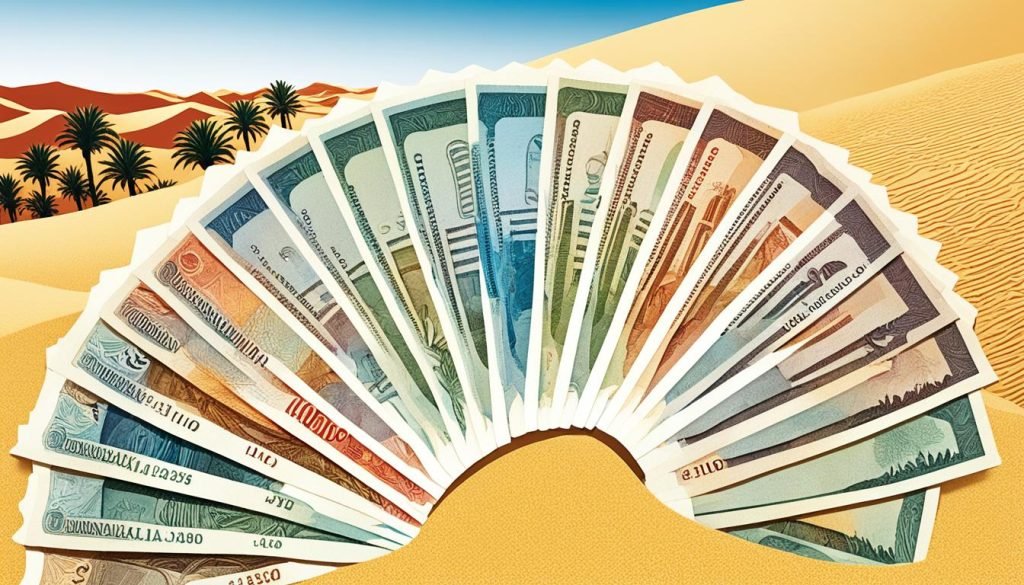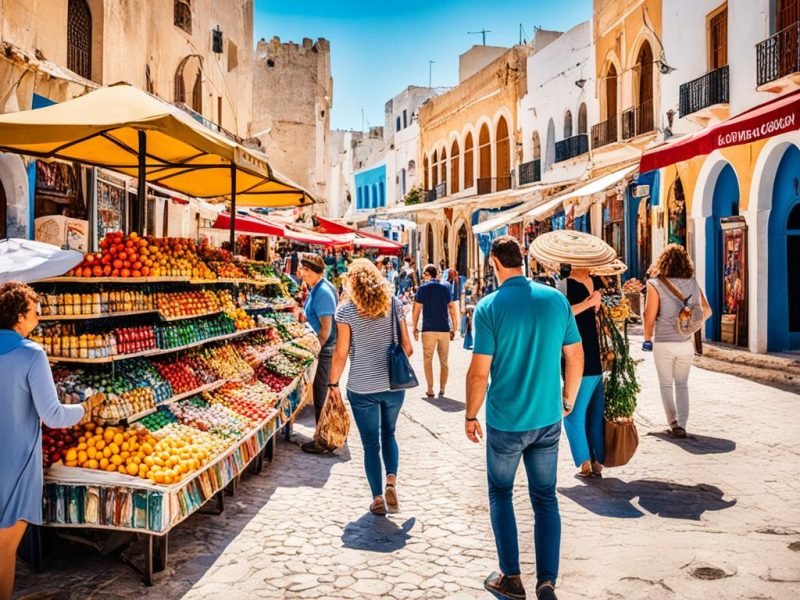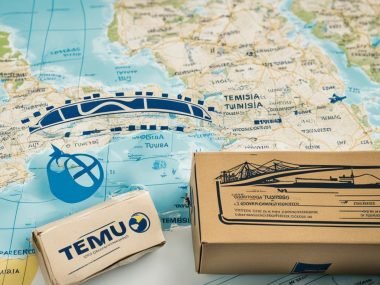Contrary to popular belief, Tunisia’s markets are not exclusively dominated by cash transactions. In fact, card payment services in Tunisia are blossoming, with large urban areas increasingly embracing digital payments. This shift reflects a rise in Visa card acceptance in Tunisia, as travelers find it fairly straightforward to navigate financial exchanges using their plastic companions. However, despite Visa’s widespread reach, complications with Mastercard in Tunisia are not uncommon, throwing curveballs at tourists expecting seamless transactions.
If you’re packing your bags and wondering about payment options in Tunisia, this article serves as an essential guide. From sipping mint tea in a bustling café to haggling in aromatic souks, having the right payment method could make or break your experience. Although cash remains king in many smaller vendors and informal markets, your financial savvy – particularly when it comes to card usage – is pivotal in the more cosmopolitan pockets of this North African gem.
Key Takeaways
- Card payment services are evolving in Tunisia, but some cards are more readily accepted than others.
- Visa cards tend to be more widely accepted at Tunisian ATMs and establishments than Mastercard.
- Connectivity issues can sometimes affect card transactions in Tunisia, so having a backup plan is wise.
- Be sure to abide by local laws and do not attempt to export Tunisian dinars.
- Using bank receipts for currency exchanges is a must, as ATM receipts are not valid for this purpose.
Gathering Tunisia travel tips before embarking on your journey can help alleviate some of the financial unknowns. Stay tuned, as we explore the ins and outs of using cards in Tunisia, helping you to avoid the pitfalls and embrace the pleasures of travel with confidence.
Understanding the Currency in Tunisia
As you plan your journey to Tunisia, it’s crucial to become acquainted with the local currency—the Tunisian dinar. Recognizing the nuances of Tunisian dinar exchange rates and the intricacies of using debit card in Tunisia will aid in a hassle-free travel experience. Even when considering international card usage in Tunisia, staying informed about the closed nature of the Tunisian currency can save you from potential legal issues.
The Tunisian Dinar: A Closed Currency
Unlike many other currencies used around the world, the Tunisian dinar is categorized as a ‘closed currency.’ This unique status means that the dinar cannot legally cross the Tunisian border, essentially forbidding any import or export of the currency. As such, should you arrive in Tunisia, it’s expected that you’ll either engage in Tunisian dinar exchange on arrival using other currencies or utilize international payment methods throughout your stay.

Legal Implications of Taking Dinar Out of Tunisia
When it’s time to head back home, it’s imperative to remember that taking Tunisian dinars out of the country can lead to legal penalties. To circumvent this issue, most travelers rely on using debit cards in Tunisia. Despite the convenience, it’s important to account for any fees your bank may levy for international card usage in Tunisia, which can add unexpected costs to your travel budget. Foreign transaction fees typically range from 2.75% to 2.99%, and there may be additional charges for cash withdrawals at ATMs.
Ultimately, by understanding the Tunisian dinar and managing your finances appropriately, you can steer clear of any legal complications and fully enjoy your visit to this beautiful Mediterranean country.
Card Acceptance in Tunisian Establishments
As you consider the logistics of your journey to Tunisia, understanding the dynamics of using a credit card in Tunisia is vital. With tourist hotspots and urban centers increasingly supporting card transactions, there’s a push towards modern payment conveniences. However, the nuances of these services require your attention to ensure smooth financial experiences during your stay.

Using Credit Card in Tunisia
Using a credit card in Tunisian hotels, shops, and restaurants has become more prevalent. Larger establishments tend to welcome international payment options, which can provide a layer of security and flexibility for your transactions. But, do keep in mind that unforeseen issues, like authorization declines, particularly with certain card providers, may still occur. For purchases you intend to protect under Section 75 of the Consumer Credit Act, be conscientious of the stipulated price range as well as the implications of any foreign transaction fees involved.
Debit Cards and Their Acceptance
Debit cards enjoy a similar level of acceptance in Tunisia, especially in tourist-frequented areas, yet the infrastructure is not without its hurdles. Shops, hotels, and eateries in more rural or less trafficked locations might still only operate on cash, thus preparing a combination of payment methods is advisable. Although credit and debit cards offer tangible benefits, travelers are encouraged to look into cards tailored for overseas use to circumvent certain charges, which can significantly reduce the costs associated with accessing one’s funds abroad.
ATM Availability and International Card Usage
When you travel to Tunisia, understanding the landscape of ATM access in Tunisia is crucial for ensuring that you have ample funds for your trip. Fortunately, an array of ATMs can be found in most tourist resorts and main towns, providing a sigh of relief to those traveling with international cards. Specifically, Visa card acceptance in Tunisia is broad, and you are likely to experience straightforward cash withdrawals in these areas.
However, the process of banking in Tunisia through ATMs, while accommodating, does come with certain considerations. It is vital to be cognizant of any transaction fees that may be associated with cash withdrawals. Whether using a debit or a credit card, these fees can add up and should be factored into your budget for financial transactions in Tunisia.
- Check for the logo of your card on the ATM to ensure compatibility.
- Inquire about international transaction fees from your bank before your trip.
- Withdraw larger amounts less frequently to minimize transaction fees.
If your travels take you beyond the well-trodden path and into less urban areas, it would be wise to carry an adequate amount of Tunisian dinar with you. The frequency of ATMs drops significantly outside of major tourist spots, meaning dependency on card payments becomes less practical. Keeping cash on hand ensures uninterrupted enjoyment of the local culture and services.
Carry a mix of payment methods to navigate the fiscal landscape of Tunisia efficiently, ensuring a delightful and hassle-free adventure.
Exploring Payment Options in Tunisia for Travelers
Embarking on a trip to Tunisia requires efficient financial planning in Tunisia, and knowing your payment options is critical. Your budgeting for Tunisia trip can impact your overall travel experience, especially when it comes to managing expenses with ease and security. As you explore the diverse landscapes and rich cultural heritage, having the most suitable form of money matters in hand is indispensable.
Prepaid Travel Cards: A Budgeting Tool
For those aiming to keep a tight rein on their expenses, prepaid travel cards in Tunisia offer an effective budgeting tool. These cards help avoid overspending by allowing you to load a set amount of funds before your trip, aligning with your financial boundaries. The prepaid aspect also lends itself to a safer travel money option as it is not directly linked to your bank account, thus mitigating potential risks.
However, it’s important to acknowledge the limitations and fees that may apply:
- Some top-up fees or international transaction charges,
- Replacement costs in case the card is lost or stolen,
- Possible acceptance issues at certain service points such as car rentals or rural shops.
Despite these factors, the security benefits and spending control offered by prepaid travel cards can be significant, making them an attractive choice for budget-conscious travelers.
Credit Cards: Balancing Convenience with Costs
On the other hand, using a debit card in Tunisia or a credit card presents a different set of advantages and considerations. With credit cards, you get heightened purchase protection and the convenience of widespread acceptance. The trade-off, though, comes in the form of:
- Foreign transaction fees,
- Potential interest charges if the balance is not paid off promptly.
As for debit cards, their use is widespread, however, transaction fees and unpredictability of ATM access in certain areas can be a hindrance. In light of these factors, it’s crucial to weigh the pros and cons based on your travel needs and financial planning preferences.
| Payment Method | Benefits | Considerations |
|---|---|---|
| Prepaid Travel Cards | Fixed budgeting, enhanced security | Potential usage limitations, fees for top-up/replacement |
| Debit Cards | Direct access to bank funds, convenience | Transaction fees, variable ATM access |
| Credit Cards | Purchase protection, universal acceptance | Foreign usage fees, interest charges |
Can You Use Card In Tunisia? – Card Services and Challenges
When venturing into the vibrant landscapes and rich history of Tunisia, navigating through the myriad of card payment services in Tunisia can be less straightforward than expected. While the introduction of international payment systems has made carrying every dinar in your pocket unnecessary, you’ll still face the reality of card payment challenges in Tunisia that may require a blend of cash and digital transactions. Respecting the nation’s strict monetary laws is crucial, not least with the legality tethered to the Tunisian dinar, underscoring the importance of managing finances in Tunisia with diligence and awareness.
In the bustling cities and tourist hotspots, the acceptance of plastic is notably prevalent, and handling day-to-day expenses with cards comes with ease. However, you might find yourself in a quaint local market or a remote beach café where accepting cards in Tunisia is not the norm. There, cash is king, and finding an operational ATM nearby can turn into an unwitting adventure. It’s these moments when your financial strategy pays off, balancing card usage with cash in hand, to avoid any disruptions to your travel plans.
Understanding the local financial landscape is empirical for a stress-free experience. Whether you’re sipping tea in Sidi Bou Said or bartering in the souks of Tunis, a dynamic approach, keeping in line with Tunisia’s financial legalities, will usher in an untroubled journey. Prepare for the occasional hiccup with card acceptance, anticipate potential fees, and you’ll navigate the financial waters of Tunisia as seamlessly as one of its famed Mediterranean ferries. With a smart blend of financial tools and a little planning, you can ensure your focus remains on the mesmerizing scenery rather than the puzzling terms of international transactions.







